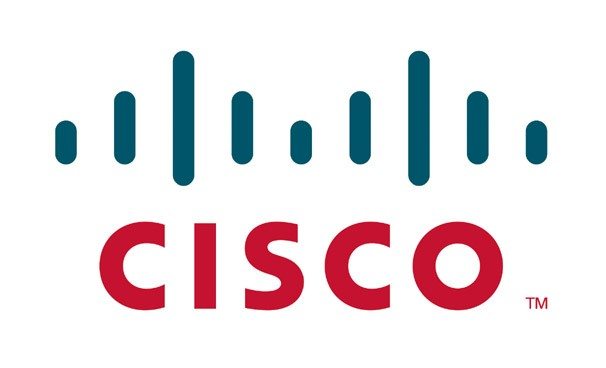
It’s great being in another timezone as, after my 11-hour flight, I felt really tired so an early dinner and then bed by 10 o’clock ...
... waking up at 1:30 a.m.for a nice five hours of watching movies whilst trying to get back to sleep.
I get to my first meeting and say, “y’know, I’ve been awake since half-one and need coffee”. I then find that everyone else from Europe and America is the same way and up since one or two this morning.
This may be a bleary-eyed SIBOS therefore and I get to my first session, which focuses upon clearing and settlement, to find the audience asks no questions ... yep, they need coffee.
The session opens with a statement from the SWIFT hosts that this is a record-breaking SIBOS with over 5,300 people registered which is more than SIBOS in Sydney three years ago.
So much for a market that has meant to have imploded.
In fact, as I go around the exhibit hall, I see that many of the booths are bigger, brighter and better than ever ... including those of Citi (“we’ve spent a billion dollars on infrastructure in 2009”) and Royal Bank of Scotland (“making it happen”).
Anyways, back to the first session which was a keynote from Michael Bodson, Executive Managing Director of the DTCC.
The DTCC is the large US Central Counterparty Clearing systems (CCP) with the aim of moving into being the largest clearing system globally, as demonstrated by their OTC Derivatives information warehouse which, according to Michael, now tracks $450 trillion worth of credit derivatives in 35 countries.
He emphasised that this is key: a single data repository, a single warehouse, a single hub. The idea of multiple hubs for each region, which is being mooted by the EU as they do not want to rely on a single US-based hub, is clearly wrong in his view.
This is because right now, it is clear to all parties how to register a risk because it is on a single database. If there were multiple hubs, then which risk gets registered on which hub for which counterparty becomes confused.
Or that’s the DTCC’s view.
On a wider note, he did say that post-trade has suddenly become a hot topic because we stared into the abyss last year and survived thanks to collective resilience of the infrastructures.
“A year ago, nothing worked. Stocks failed, bonds failed, everything failed ... except market infrastructures. Infrastructures worked.”
He outlined that the DTCC handled $500 billion in open Lehman Brothers trades during the six weeks after their collapse on September 15th 2008. In fact, during one day, they liquidated $300 billion in open positions.
These are shocking numbers and the fact that the infrastructures worked and were resilient was the key.
This is why the clearing and settlement plumbing of the world’s financial markets has gone from being “about as exciting as goat’s cheese” to being sexy.
Clearing and settlement has moved from being post-trade back office boredom to being critical to everyone’s management of risk and exposure in these global markets of liquidity.
Interestingly, the DTCC had actually run a simulation of a major top ten investment bank failure based upon Lehman Brothers as the case in point, as a training exercise just weeks before their collapse.
A prescient moment.
Michael also referenced that regulators should have three areas of concern in the markets – an asset bubble, liquidity risk or major fraud. The fact that you had Lehman Brothers and Bernie Madoff within months of each other shows what a good job the regulators are doing.
Yeah, baby, yeah.
This presentation made for a good grounding for the panel that followed which was all about competition and value-add between global custodians, central securities depositories (CSDs) and central counterparty clearing systems (CCPs).
To be honest, there’s a challenge there in that you don’t really want competition between these groups if you are trying to manage risk effectively. The ideal risk manager you see, is a risk management of one, where all risk is centralised. That is the point of a CCP or CSD, to have it centralised.
As a result, you really have a natural monopoly when it comes to clearing and settlement. This was the grounding of the panel which comprised:
- Philippe Metoudi of Clearstream representing Asia;
- Monica Singer of Strate representing Africa;
- Ted Rothschild pf JP Morgan representing America; and
- Alan Cameron of BNP Paribas representing Europe;
chaired by yours truly.
It turned out to be a really good panel, debating the nature of ‘value-add’ and ‘competition’ in the post trade clearing markets.
As I chaired it, I didn't take many notes or quotes but am sure it will get a write-up somewhere and will link to this later. The one comment I did note was the one comment from the floor from a not-for-profit clearing infrastructure:
“CSDs get accused of being fat, dumb, lazy and bureaucratic as state-run enterprises and are then told that it is not right if they try to innovate, compete and reduce prices and costs. We can’t win.”
Yeah, baby, yeah.
*
The Finanser is sponsored by Vocalink and Cisco:

For details of sponsorship email us.
Chris M Skinner
Chris Skinner is best known as an independent commentator on the financial markets through his blog, TheFinanser.com, as author of the bestselling book Digital Bank, and Chair of the European networking forum the Financial Services Club. He has been voted one of the most influential people in banking by The Financial Brand (as well as one of the best blogs), a FinTech Titan (Next Bank), one of the Fintech Leaders you need to follow (City AM, Deluxe and Jax Finance), as well as one of the Top 40 most influential people in financial technology by the Wall Street Journal's Financial News. To learn more click here...

